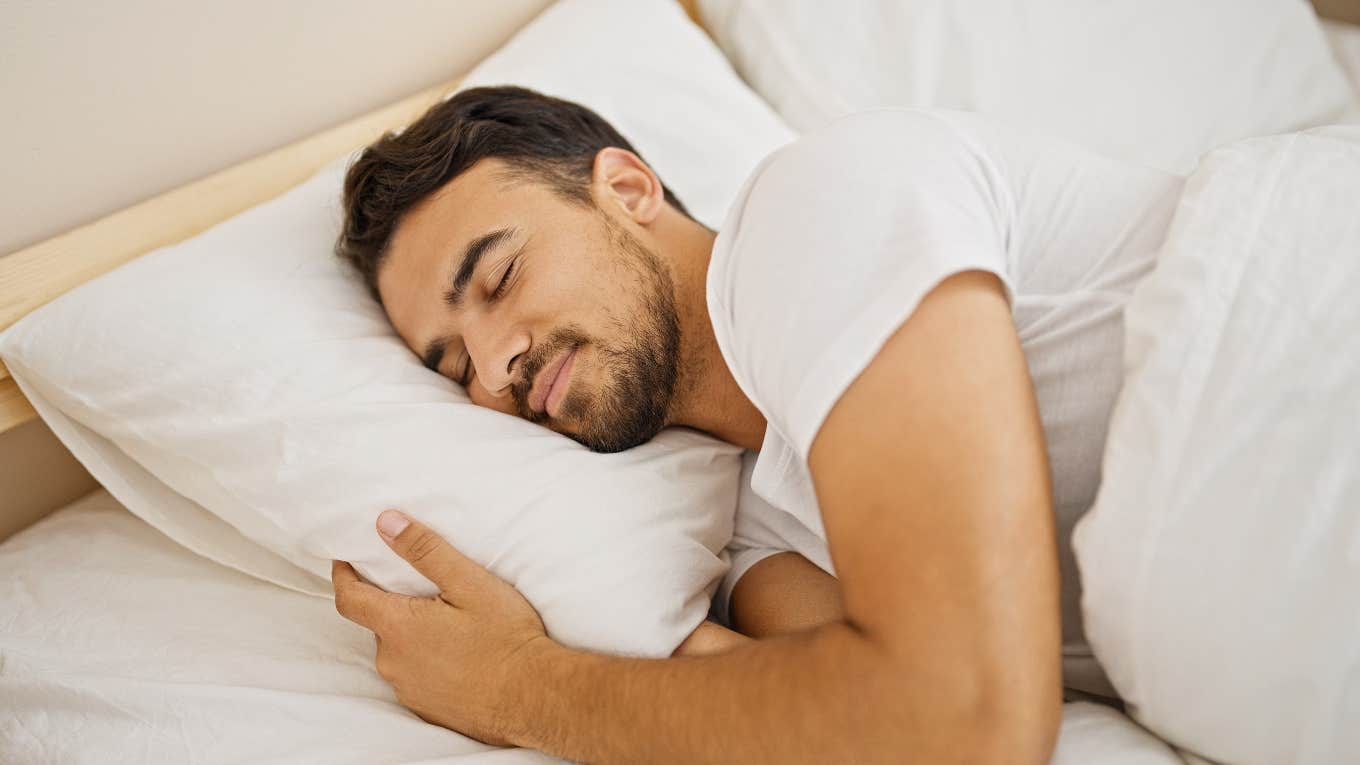People Who Always Sleep On The Left Side Of The Bed Usually Display These 4 Personality Traits
It's not always best to wake up on the right side of the bed.
 Krakenimages.com | Shutterstock
Krakenimages.com | Shutterstock Do you sleep on the left side of the bed, the right, or smack-dab in the middle, starfished across the entire mattress? While the side of the bed you prefer to sleep on may seem trivial, it is actually quite revealing.
Research shows that your chosen side offers unexpected insight into your personality, and people who always sleep on the left side of the bed usually display these four personality traits:
1. Cheerfulness
 PeopleImages.com - Yuri A | Shutterstock
PeopleImages.com - Yuri A | Shutterstock
Hope Bastine, a sleep expert and psychologist, spoke to Cosmopolitan about this very topic. She claimed that left-side sleepers "are likely to be more cheerful than their right-side counterparts." They have a more positive outlook on life, too, and often wake up happier.
This positivity has outsized benefits. YourTango staff writer Alexandra Blogier noted that optimism and positivity are the biggest predictors of success. This mindset also helps people deal with day-to-day stress. "A positive outlook allows lefties to be more capable at dealing with a heavy workload, which means they’re not as easily fazed by a stressful day," Bastine explained.
A 2015 U.K. study conducted by Sealy, a bed manufacturer, further supports these claims. They surveyed 1,000 people to find out how our sleeping habits impact our mood, career, and outlook on life, Huff Post reported. They found that people who usually sleep on the left side of the bed are 4% more inclined to wake up in a good mood and nearly 10% more likely to have a positive outlook on life.
2. Calmness
Bastine added that people who sleep on the left side of the bed believe they are "calmer than their partner in a crisis," which could also be linked to their natural optimism.
Of course, no matter which side of the bed you prefer, quality sleep is linked to improved mood and emotional stability. Writing for Healthline, Joe Leech noted that "When we’re tired, we have a harder time managing emotional outbursts and other behaviors in front of others." People who get better sleep are calmer and more capable of managing their emotions.
3. Confidence
 insta_photos | Shutterstock
insta_photos | Shutterstock
Left-side sleepers also tend to have higher levels of confidence. Again, this is potentially linked to their optimistic outlook. Positive self-talk especially promotes self-acceptance and lessens self-doubt, which, of course, leads to heightened confidence levels.
Interestingly, according to a 2022 study of 2,000 U.K. adults conducted by The Sleep Charity, men tend to opt for the left side of the bed.
Research has found that there is a "confidence gap" between men and women, with men being far more comfortable with self-promotion and more likely to overestimate their performance. If you're struggling with confidence, maybe it's time to switch sides of the bed with your partner.
4. Creativity
In 2021, Premier Inn, the UK's largest hotel brand, studied 3,000 sleepers and found that those who sleep on the left side of the bed possess more right-brained qualities. While left/right-brained thinking has not been scientifically proven, the left side of the brain is associated with logic and linear thinking.
Right-brained people, on the other hand, are generally more creative, intuitive, and artistic.
Kayla Asbach is a writer currently working on her bachelor's degree at the University of Central Florida. She covers relationships, psychology, self-help, pop culture, and human interest topics.

